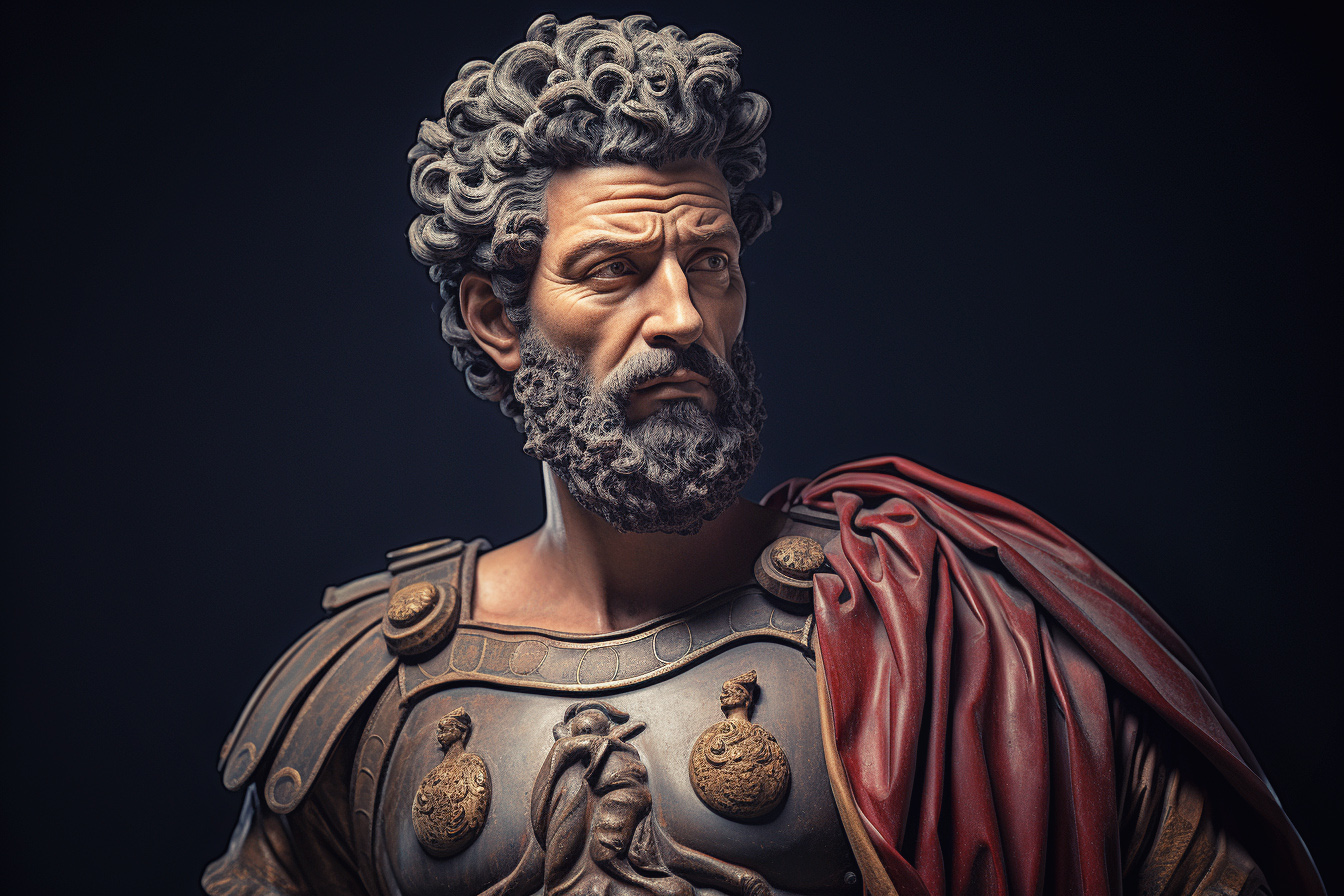Marcus Aurelius was a Roman Emperor who lived in the 2nd century AD. He was drawn to Stoic philosophy and aspired to live virtuously by practicing its principles. Stoicism encourages living in harmony with nature, controlling one’s emotions, and gaining wisdom and inner peace.
Marcus Aurelius’ work “Meditations” compiles his notes and reflections on applying Stoic teachings to daily life as emperor. This seminal work provides timeless wisdom and has been a source of inspiration for many seeking meaning and tranquility through the centuries.
This article explores three vital Stoic ideas reflected in Marcus Aurelius’ writings – simplifying life, seeking tranquil moments, and embracing change. It also examines their relevance in modern times when people face stress, dissatisfaction, and a lack of purpose.
Simplifying Life
A core tenet of Stoicism is the principle of simplification – focusing on the essential aspects of life and removing unnecessary complexities and trivialities. Marcus Aurelius cautioned against catching up in inconsequential activities, conversations, and thoughts that distract us from what truly matters.
He observed how people busied themselves with extra things like lavish houses, banquets, and the endless pursuit of wealth and fame. But they neglected fundamentals like developing wisdom, justice, courage, and moderation. Material goods and external validation were seen as unimportant.
To simplify, we can create a task list, differentiating between urgent and important tasks. We can practice essentialism by eliminating non-essentials and distractions and focusing our time and energy on core priorities. This provides clarity, direction, and meaning.
As Marcus Aurelius wisely stated, “A little flesh, a little breath, and a Reason to rule all – that is myself.” He emphasized focusing on the bare necessities – our physical existence and ability to think rationally. This allows one to control wayward impulses and achieve tranquility of mind.
Seeking Tranquil Moments
In addition to simplification, the Stoics recognized the futility of seeking refuge from one’s troubles in physical locations, possessions, or recreational travel. Such external comforts provide fleeting relief at best. As Marcus Aurelius wrote, “Nowhere can man find a quieter or more untroubled retreat than in his own soul.”
Marcus Aurelius emphasized looking inward to find peace, meaning, and contentment. He prescribed spending time in contemplation, reflection, and meditation to develop the presence of the mind. This builds an inner reservoir of tranquility that one can tap into, no matter the external circumstances.
Quiet contemplation offers a perspective that worldly pursuits cannot match. As Marcus Aurelius observed, “All is ephemeral – fame and the famous as well. And whatever delights, or gives transport to the sense.” Recognizing the fleeting, impermanent nature of things brings acceptance and calm.
We can all benefit from regular mental retreats – setting aside time for solitude, reading philosophy, writing in a journal, practicing mindfulness meditation, or simply observing nature. This cultivates clarity and tranquility to deal with life’s unpredictability.
Embracing Change
A fundamental tenet of Stoicism is understanding that existence is constantly changing – nothing remains stable or perfect indefinitely. Hericlitus’ philosophy of impermanence heavily influenced Marcus Aurelius.
The exercise of Momento Mori – reflecting on the inevitability of death – was an essential spiritual practice. Change was seen as the natural state of the universe and human life – rather than an aberration.
While change can provoke anxiety, the Stoics found serenity in grasping its eternality. Everything goes through cycles of creation and destruction. We suffer because we tenaciously cling to aspects of life we presume are permanent – health, relationships, possessions, status.
Moreover, nothing is inherently good or bad – our subjective judgments make it so. An event that seems like a catastrophe may be a blessing in disguise. The Enchiridion of Epictetus states, “Man is disturbed not by things, but by the view he takes of them.”
We can influence our reactions to change and hardship through reason, discipline, and wisdom. Adversity is an opportunity to develop virtues like courage, justice, and self-control. By focusing on what we can control, we gain resilience.
As Marcus Aurelius wrote, “The infinite life shines through in infinite joy, from all things.” If we let go of our earthly attachments and narrow desires, we can recognize the eternity behind and ahead of us and our transient place in it. This brings sublime peace and contentment.
Conclusion
In conclusion, Marcus Aurelius’ profound wisdom established Stoicism as a philosophical system that continues to resonate today. By simplifying our lives, practicing mindfulness, accepting impermanence, and focusing on self-mastery, we can move closer to the Stoic ideal of tranquility, virtue, and living in agreement with nature.
While circumstances will always change, our capacity to respond with wisdom, justice, courage, and moderation remains within our power. Reflect deeply on these timeless Stoic principles – they can guide us to live more meaningful, fulfilling lives no matter our station. We could all benefit from Stoic tranquility in these turbulent times.
